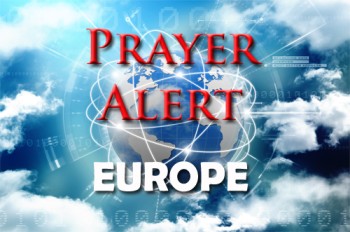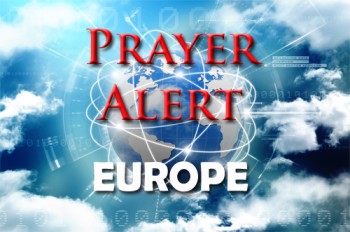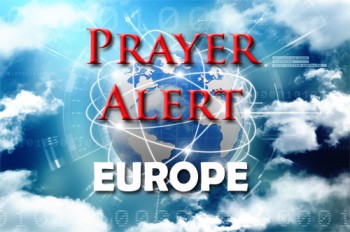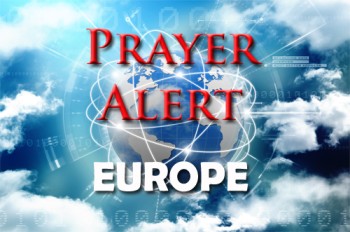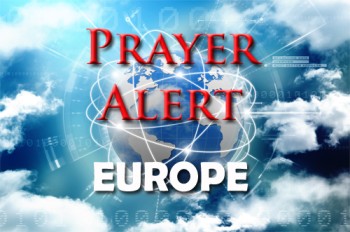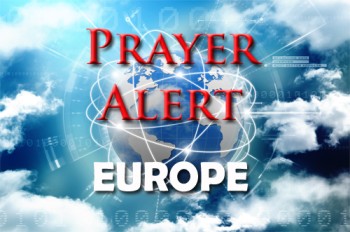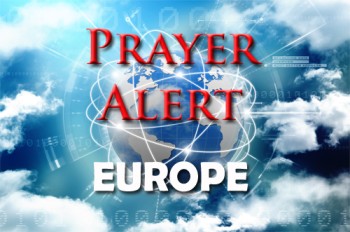Displaying items by tag: Europe
Armenia / Moldova: initiative for youth with disabilities
Eurasia Foundation (EF) has announced the launch of a two-year Justice for Underserved Youth with Disabilities (JUDY) initiative, which promotes the full social, economic, and political integration of youth with disabilities in Armenia and Moldova. EF works with local organisations, international disability rights experts, and youth advocacy experts to amplify the voices of youth with disabilities between ages 18 and 30. Lisa Coll, EF president, says, ‘JUDY addresses the unique challenges faced by youth with disabilities, both because of their age and entrenched cultural stigma around disability.’ While both the governments of both countries demonstrate interest in protecting the rights of people with disabilities, the legacy of Soviet-era policies and cultural stigma often complicate the work of disability rights advocates. Many institutions in both countries view disability as a medical topic, rather than a social and political issue that can change through concerted effort. JUDY will approach these challenges by involving organisations and experts with deep roots in the local disability rights communities. This collaboration will foster more open dialogue, build relationships, and provide support for youth-led initiatives.
Ukraine war: Russia hits most settlements in one day
On 1 November, Russia unleashed a barrage on 118 Ukrainian towns and villages within 24 hours, marking the highest number of settlements hit in a single day this year, according to Ukrainian interior minister Ihor Klymenko. The attacks, targeting ten of Ukraine's 27 regions, resulted in casualties and fatalities. Many of the affected areas were near the front lines in eastern and southern Ukraine. Russia has been concentrating its military efforts on Avdiivka, a strategically vital town in the Donetsk region, causing significant damage. Ukraine has repelled multiple attacks in the area, and Russia has increased attacks on other towns and areas away from the front lines. Amid concerns about Western fatigue with the war, Volodymyr Zelensky has emphasised the need for advanced weaponry and unity among allies. Ukraine's chief military commander warned that the war is entering a positional stage, favouring Moscow's ability to rebuild its military power. Russia continues to have superior weaponry and ammunition. The situation has prompted the USA to seek approval for a $106 billion package to support Ukraine and Israel.
France: combatting the rise in anti-semitism
Prime minister Elisabeth Borne has pledged to combat rising antisemitism vigorously after anti-Jewish graffiti was discovered on buildings in various Paris neighbourhoods. She emphasised that the situation in the Middle East should not justify antisemitism and stated that her government is committed to an unrelenting battle against it. Since the 7 October Hamas attack on Israel, France has documented 857 antisemitic incidents, according to interior minister Gerald Darmanin. This figure represents as many antisemitic acts in three weeks as there have been throughout the entire year. The authorities have launched multiple investigations into the Paris graffiti, with Darmanin promising protection to Jewish communities across France. The graffiti included blue Star of David symbols on several buildings, triggering painful memories and emotional responses from residents. Carine Petit, the mayor of Paris's 14th district, pointed out that such acts of marking buildings are reminiscent of the 1930s and World War II, which resulted in the extermination of millions of Jews. See
Saudi Arabia: football, human rights, nuclear programme
News that Saudi Arabia is on course to host the 2034 football World Cup is grim. The country might not win the cup, but its capacity for state murder is world class: 112 killed this year so far and counting. However, the news should come as no surprise: its geopolitical power is rising and combining with vast wealth to ensure that objections to its human rights record are brushed aside by those in power. Before he was elected president, Joe Biden declared that Saudi would be treated as a ‘pariah state’ following the state-sanctioned murder of dissident journalist Jamal Khashoggi in 2018. But once he was in the Oval Office, realpolitik intervened. His administration is now most concerned about China’s growing influence, which is why it has agreed to Saudi Arabia’s request for help in building a civilian nuclear programme - which critics fear could lead to developing nuclear weapons. US dollars could end up paying for the defence of a brutal Gulf regime that has undermined Western economies, helped Russia’s invasion of Ukraine by cutting oil supplies and keeping prices high, and continued with the catastrophic war in Yemen. In these terms, gifting Bin Salman the World Cup seems like a minor folly.
Germany: petrol bombs thrown at Berlin synagogue
On 18 October two people threw Molotov cocktails at a synagogue in Berlin, as anti-Semitic violence escalated in Europe. The attacks came after Hezbollah called for a ‘day of rage’ over the explosion at a hospital in the Gaza Strip, where hundreds of people are feared dead. The Central Council of Jews said that ‘day of rage’ was not just a phrase but ‘psychological terror that leads to concrete attacks’. The synagogue also houses a community centre, a kindergarten and high school for 130 children. One local said, ‘We knew it was only a matter of time and it's not the end.’ Jewish institutions typically have ongoing police protection in Germany, and reports suggest officers were at the scene when the attack happened. Hours later, police briefly detained a man who approached the building on a scooter, then ran towards the synagogue shouting anti-Israel slogans.
EU countries welcome Polish election result
Politicians across Europe have been encouraged by the result of the Polish election on 15 October - especially in Germany, the favourite target of the ousted Law and Justice (PiS) party. A German MEP said, ‘I expect that Poland will become a constructive partner and that the change in government will strengthen its standing in Europe’; and Katja Leikert, a Christian Democrat MP who sits on its foreign relations committee, said the election results ‘give hope’ to Europe. German-Polish relations have suffered in recent years. Foreign minister Annalena Baerbock had sought to improve relations last year, travelling to Warsaw on Germany’s national day as a sign of respect for an important ally and neighbour. Instead of welcoming the gesture, however, the PiS leaders formally demanded that Germany pay €1.3 trillion in war reparations. Russia’s reactions to the election results were less enthusiastic: see
Italy: evangelical group condemns Vatican ecumenical meeting
Italian evangelical Christians have protested against the ‘active and public’ participation of Thomas Schirrmacher, secretary-general of the World Evangelical Alliance (WEA) in a large ecumenical prayer vigil organised in the Vatican on 30 September. This featured prayers led by the heads of twenty Christian confessions, including Mr Schirrmacher. The Italian Evangelical Alliance (AEI) said, ‘We are confused and disappointed. Once you pray publicly with the Pope, in St. Peter’s Square, in front of a Marian portrait, embracing the message of spiritual unity with liberals and orthodox leaders, your alleged distinction becomes secondary.’ Pope Francis said the event would help to sow unity among Christian confessions. According to the event’s website, he shared ‘personal memories of his ecumenical journey’. The Spanish Evangelical Alliance has also criticised WEA’s participation: see
Türkiye: first new church in 100 years
On 11 October, a long-awaited day, St Ephrem Church in Istanbul was opened - the first Christian place of worship to be built in Türkiye in a hundred years. Around 20,000 Syriac Orthodox live in the metropolis, but until now they had only one church. Archbishop Yusuf Cetin said: ‘At some big ceremonies, more than half of the congregation stood outside. That is difficult when it is very cold or very hot. That's why in 2010 years ago we visited the president and the prime minister and started a dialogue.’ Following this, the congregation was allocated a plot of land and bureaucratic hurdles were overcome. These included a court case with the Catholic community in the area. However, if you ask the Catholics in Istanbul today, there is no longer any talk of a dispute. The building of the church is a historic event, says Fr Claudio Monge: ‘Not only all Christians, but also all those who have worked for an inclusive country that respects diversity and considers it an enrichment, can only rejoice!’
Poland: bitter election campaign splits country
In the old shipyard in Gdansk, where striking workers were once the catalyst for major political change, young Poles now worry that the rights and freedoms won by the Solidarity movement over three decades ago are at risk, as the ruling right-wing Law and Justice party (PiS) campaigns to secure a record third term in office. Critics point to the shrinking independence of the courts under PiS and backsliding on women's rights, including a near-total ban on abortion. There is also concern about media freedom - publicly-funded TV becoming a government mouthpiece - as well as acrimonious wrangling with Brussels on issues from judicial reform to migration. Many Poles regard the election on 15 October as the most important since 1989, when Solidarity candidates swept the board in the first partially-free vote since communist rule. In such a polarised race, much of the campaigning has been nasty: opposition leader Donald Tusk has referred to the government as evil and called the prime minister Pinocchio. Mateusz Morawiecki’s party consistently claims that Tusks’s party represents ‘foreign interests’, painting him as a traitor and a stooge of Berlin. Opinion polls put PiS narrowly ahead - though possibly without a large enough majority to form a government.
Russia seeks to freeze Ukraine’s counteroffensive
In the 85th week of the war, Russia is trying to freeze Kyiv’s four-month-old counteroffensive which has succeeded in wresting back half the territory captured earlier this year and depriving Russia of control of the western Black Sea. On 6 October Russian forces resumed an offensive effort against the city of Kupyansk: they are also attempting to capture Avdiivka, an eastern city which they have surrounded to the north and south. These tactical operations aimed to stop what has been a slow but steady Ukrainian advance, ahead of the Russian presidential elections. Despite these attacks, Ukraine seems to be pressing on with the counteroffensive. Meanwhile, two Ukrainian brothers have been accused of responsibility for organising the Russian missile strike on a shop and café in the village of Hroza, also on 6 October, which killed 55 civilians out of a population of 350: see

